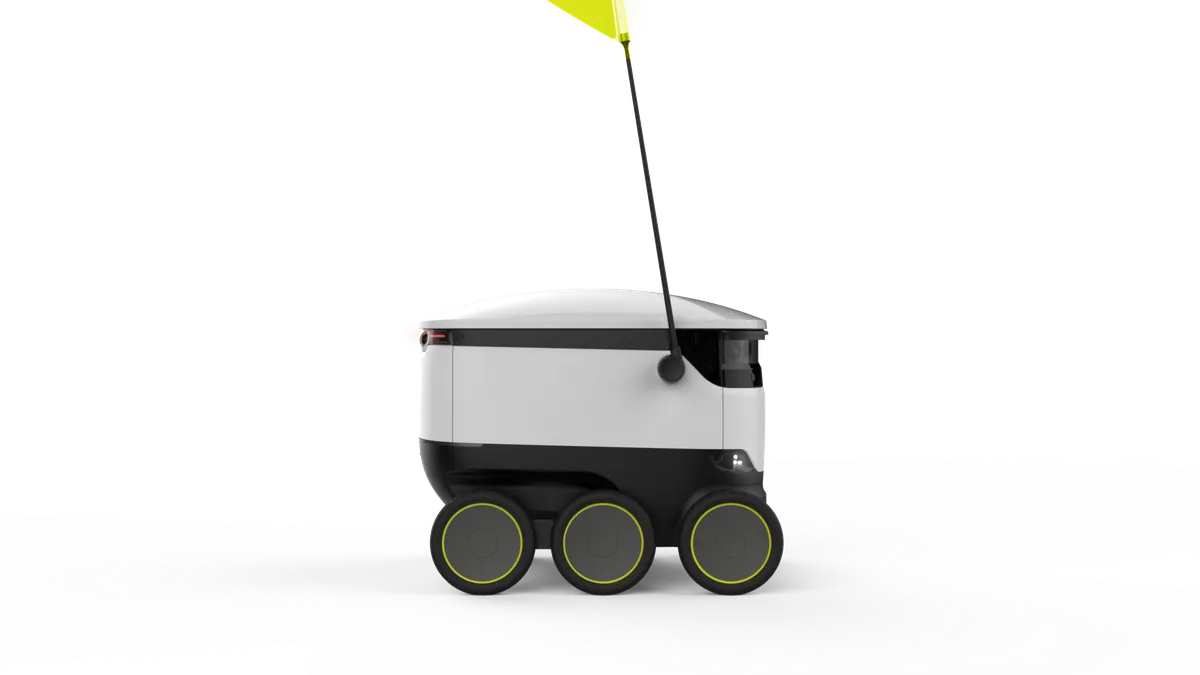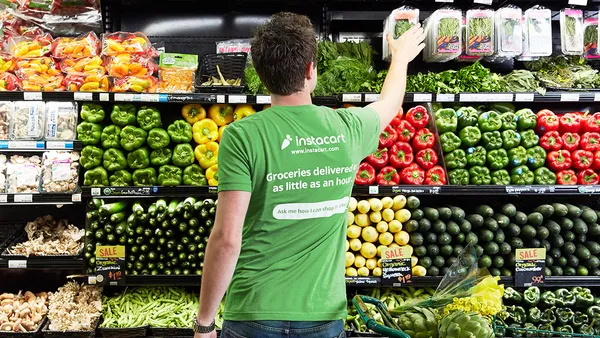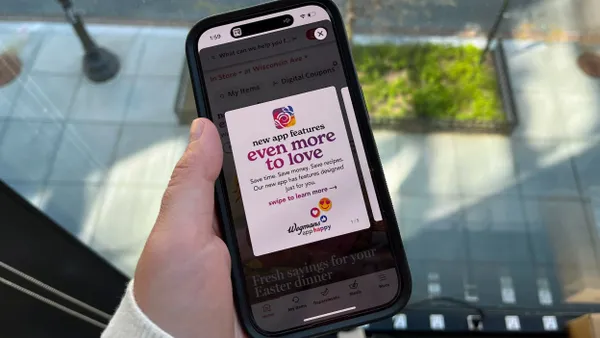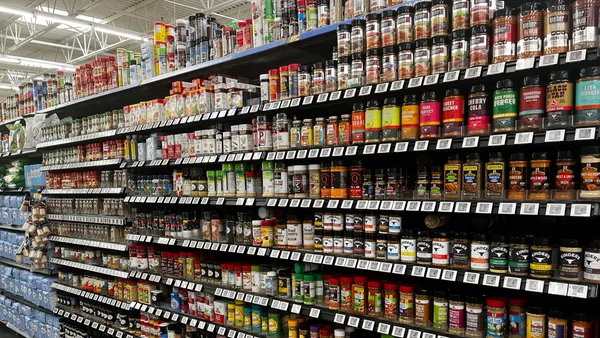Dive Brief:
- Food delivery robot startup Starship Technologies secured $17 million in new funding and is expanding its fleet to two more university campuses — the University of California-Los Angeles and Bridgewater State University in Massachusetts — the company announced in a blog post Wednesday.
- The startup, which first began rolling out at university campuses in January 2019 and last year began making deliveries from a Save Mart store in California, also said it has completed 1 million autonomous deliveries using its fleet of electrically powered robots.
- The funding round, which included Goodyear Ventures, the tire company's venture capital arm, has brought the startup’s total funding to $102 million, reflecting the favorable outlook for autonomous delivery driven by the pandemic.
Dive Insight:
Starship's strategy of targeting college campuses was made more difficult by transitions to online and distance learning last spring. The company prioritized its deployment of robots for grocery delivery, first partnering with Washington, D.C.’s Broad Branch Market in March, then with Save Mart at its flagship in Modesto, California, in September.
Despite the operational challenges posed by the pandemic, Starship hit the million-delivery mark at Bowling Green State University in Ohio, the company said in its blog post.
Starship has benefited from a positive shift in public and government perception toward delivery robots this past year as e-commerce sales swelled and demand for transactions made without human contact grew. To meet the moment of the COVID-19 pandemic, Starship has also been offering free delivery to healthcare workers and in April last year, rolling out its robot food delivery service to tens of thousands of residents in Fairfax, Virginia, after Fairfax City officials reached out to the startup.
The company's decision to expand to UCLA is unexpected given the current uncertainties around university operations, and given that the Los Angeles market already has competition from Kiwibot and Postmates’ Serve robot. Since the technology works best in locations with well-maintained sidewalks and a controlled environment like a college campus, its broad applicability and scalability for grocery is still fairly untested.
Autonomous delivery companies throughout the U.S. and abroad are trying to capitalize on growing interest in their technology. Nuro, which is piloting driverless deliveries in Houston with Kroger and, eventually, Walmart, this month received California's first autonomous vehicle deployment permit.












